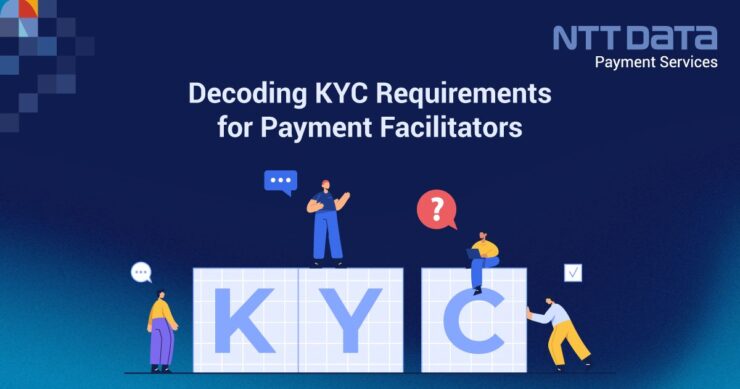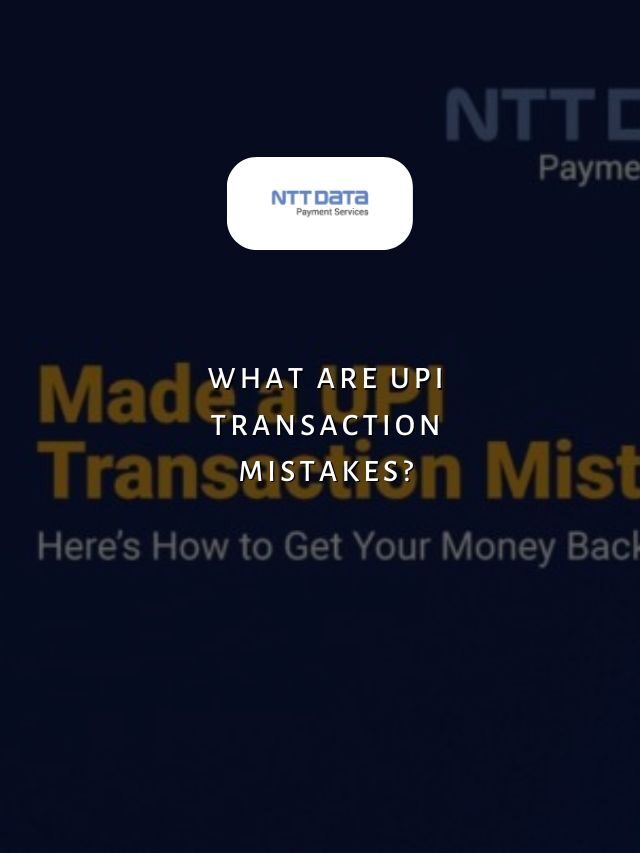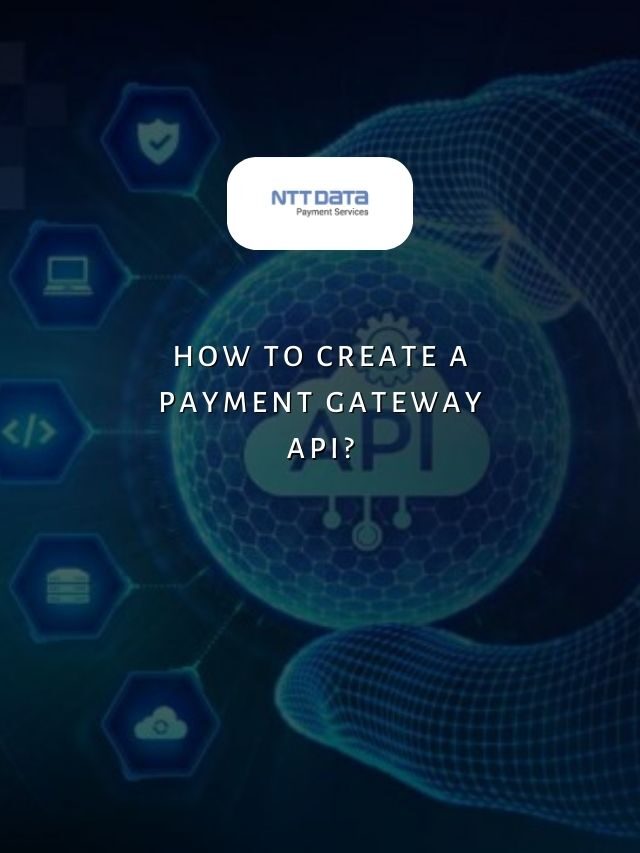
Table of Contents
- 1 Significance of KYC for Payment Facilitators in India
- 2 Recent Web Stories
- 3 About Payment Facilitators
- 4 Decoding KYC Requirements For Payment Facilitators
- 5 Role of Regulatory Authorities
- 6 KYC compliance for Payment Facilitator with NTT DATA Payment Services.
- 7 Significance of KYC for Payment Facilitators
- 8 Upholding KYC Compliance and Promoting Secure Financial Transactions
- 9 Frequently Asked Questions (FAQs)
In today’s digital age, payment facilitators facilitate seamless financial transactions. However, to ensure transparency, security, and regulation compliance, payment facilitators in India must adhere to Know Your Customer (KYC) requirements.
In this blog, let’s decode the KYC requirements for payment facilitators and explore the necessary steps and documentation involved.
Significance of KYC for Payment Facilitators in India
In an era where digital payments are gaining momentum, payment facilitators are crucial in facilitating seamless transactions between consumers and businesses. However, ensuring the integrity of financial systems and combating financial crimes requires robust Know Your Customer (KYC) procedures.
For payment facilitators operating in India, understanding and complying with the KYC requirements set forth by the Reserve Bank of India (RBI) is essential.
Recent Web Stories
About Payment Facilitators
A payment facilitator, also known as a payment service provider (PSP), is a company or entity that enables businesses and individuals to accept electronic payments for goods and services. They act as intermediaries between merchants and customers, streamlining the payment process and providing a simplified platform for accepting various payment methods, such as credit cards, debit cards, mobile wallets, and online banking.
Payment facilitators typically offer services that include merchant onboarding, payment gateway integration, transaction processing, fund settlement, and reporting. They provide businesses with the infrastructure and tools necessary to accept electronic payments, eliminating the need for merchants to establish their payment processing accounts. This makes it easier and more cost-effective for small and medium-sized businesses to accept payments online.
Decoding KYC Requirements For Payment Facilitators
KYC, an integral part of the regulatory framework, aims to verify customers’ identities, assess their risk profiles, and prevent illicit activities such as money laundering, fraud, and terrorism financing. Payment facilitators act as intermediaries, enabling transactions between buyers and sellers, making it imperative for them to establish robust KYC processes.
The payment facilitators in India are expected to comply with the following KYC requirements.
1. Customer Identification: Payment facilitators are required to obtain and verify the identity of their customers. This typically involves collecting documents such as an Aadhaar card, PAN card, passport, voter ID card, or driving license. These documents establish the identity and address of the individuals or entities involved.
2. Proof of Address: Verifying the customer’s address is crucial. Payment facilitators may request documents like utility bills, bank statements, ration cards, or any other official document that displays the customer’s residential address. This step ensures that the payment facilitator has accurate and up-to-date customer information.
3. Business Documentation: Payment facilitators may be required to submit relevant business-related documents. These can include incorporation certificates, partnership deeds, articles of association, memorandum of association, or any other document establishing the entity’s legal existence.
4. Beneficial Ownership: Identifying and verifying the entity’s beneficial owners is crucial to the KYC process. Beneficial owners own or control a significant portion of the business. Payment facilitators must ensure transparency by collecting necessary information and documentation to establish beneficial ownership.
5. Risk Assessment: Payment facilitators must conduct a risk assessment of their customers. This includes evaluating the potential risks associated with the business relationship. It includes factors such as the nature of the customer’s business, the volume and frequency of transactions, and the customer’s geographic location. The risk assessment helps payment facilitators identify suspicious activities and implement appropriate mitigation measures.
6. Ongoing Monitoring: KYC obligations are not limited to the initial verification process. Payment facilitators are required to implement robust systems for the ongoing monitoring of their customers. This includes monitoring transactions, conducting periodic reviews, and updating customer information when necessary. Ongoing monitoring helps detect and report any suspicious transactions or activities promptly.
Role of Regulatory Authorities
The Reserve Bank of India (RBI) is crucial in regulating payment facilitators and defining KYC norms. The RBI regularly issues guidelines and updates to ensure compliance with the latest standards. Payment facilitators must stay informed about these regulations and adjust their compliance processes.
The RBI also follows its guidelines when it comes to processing international transactions and authentication of payments.
Did you know?
PayFac (Payment Facilitator) simplifies merchant onboarding, assuming risk and processing responsibilities for sub-merchants. At the same time, ISO (Independent Sales Organisation) acts as a sales agent, referring merchants to payment processors without assuming direct risk.
PayFacs provides end-to-end payment solutions, while ISOs focus on sales and marketing efforts.
Choosing between the two models depends on risk appetite, control preferences, and desired level of service. Payment Facilitator has many benefits that can build businesses better.
KYC compliance for Payment Facilitator with NTT DATA Payment Services.
Finding the right payment gateway with easy KYC compliance might seem difficult. With NTT DATA Payment Services, you can get the best payment gateway services if you choose to be a payment facilitator.
DATA Payment Services offers a complete payment solution to advance your offline and online businesses from,
- Online Payment Gateway
- POS machines
- IVR payments
- Mobile applications, and
- Bharat QR Scan and Pay
We ensure maximum comfort, convenience, and safety for all your payments.
Significance of KYC for Payment Facilitators
KYC is a vital aspect of the financial landscape, enabling payment facilitators to verify their identity and assess the risk associated with their customers. By conducting proper KYC procedures, payment facilitators can mitigate the potential risks of money laundering, terrorist financing, fraud, and other illicit activities. KYC not only safeguards the financial system’s integrity but also instills trust among customers, assuring them that their transactions are secure and reliable.
Upholding KYC Compliance and Promoting Secure Financial Transactions
The KYC requirements for payment facilitators in India are designed to safeguard the financial ecosystem and ensure transparency in financial transactions. By adhering to these requirements, payment facilitators are critical in preventing money laundering, terrorist financing, fraud, and other financial crimes.
The KYC process involves customer identification, verification of addresses, business documentation, identification of beneficial owners, risk assessment, and ongoing monitoring. Payment facilitators must stay updated with the latest guidelines and regulations set forth by the RBI and other regulatory bodies to ensure compliance and maintain the integrity of their operations.
| Also, you can get frequent updates on nttdatapayments Instagram page. |
Frequently Asked Questions (FAQs)
- Who is a payment facilitator?
A payment facilitator, also known as a payment service provider (PSP), is a company or entity that enables businesses and individuals to accept electronic payments for goods and services. They act as middlemen between merchants and customers.
- Who is responsible for KYC?
The Banks must comply with KYC regulations and anti-money laundering regulations. The Reserve Bank of India issues the guidelines of KYC and is ultimately responsible.
- When is KYC required?
KYC must be renewed once every ten years if you are a low-risk customer and once every two years if you are a high-risk customer.
- How does the KYC process work?
KYC is the process of personally verifying a customer with personal information and documents. This is done while opening an account and verifying the person’s identity over a period.
- How are payment facilitators regulated?
Based on the RBI-provided guidelines, the payment facilitators are supposed to comply with laws and regulations that include data security & anti-money laundering. The RBI regulates payment facilitators through its regulations.
- What is a KYC?
KYC stands for Know Your Customer. It is a process that financial institutions, businesses, and organizations use to verify and confirm the identity of their customers or clients. The KYC process involves gathering relevant information and documentation to establish individuals’ identities, addresses, and other details.







